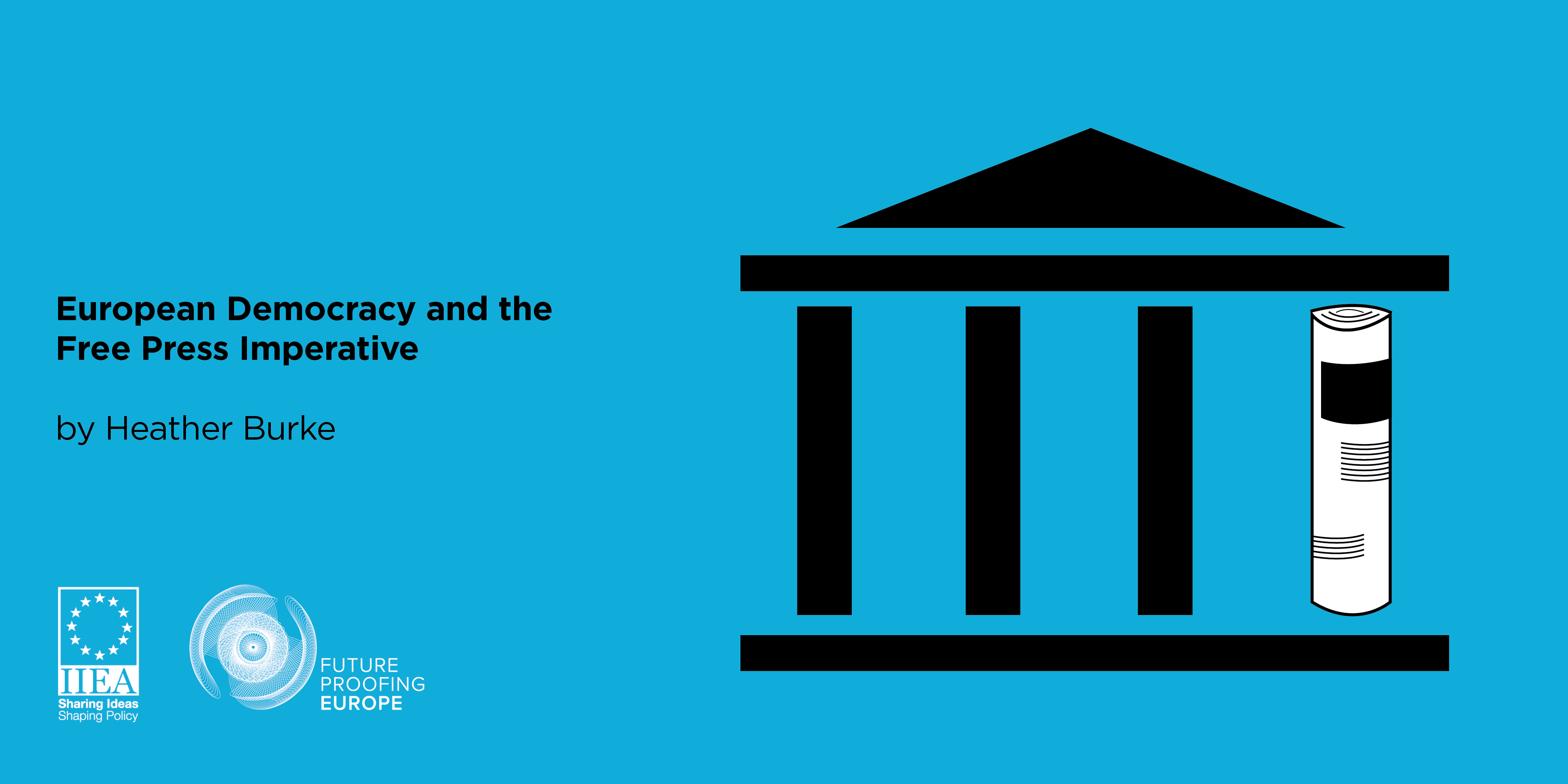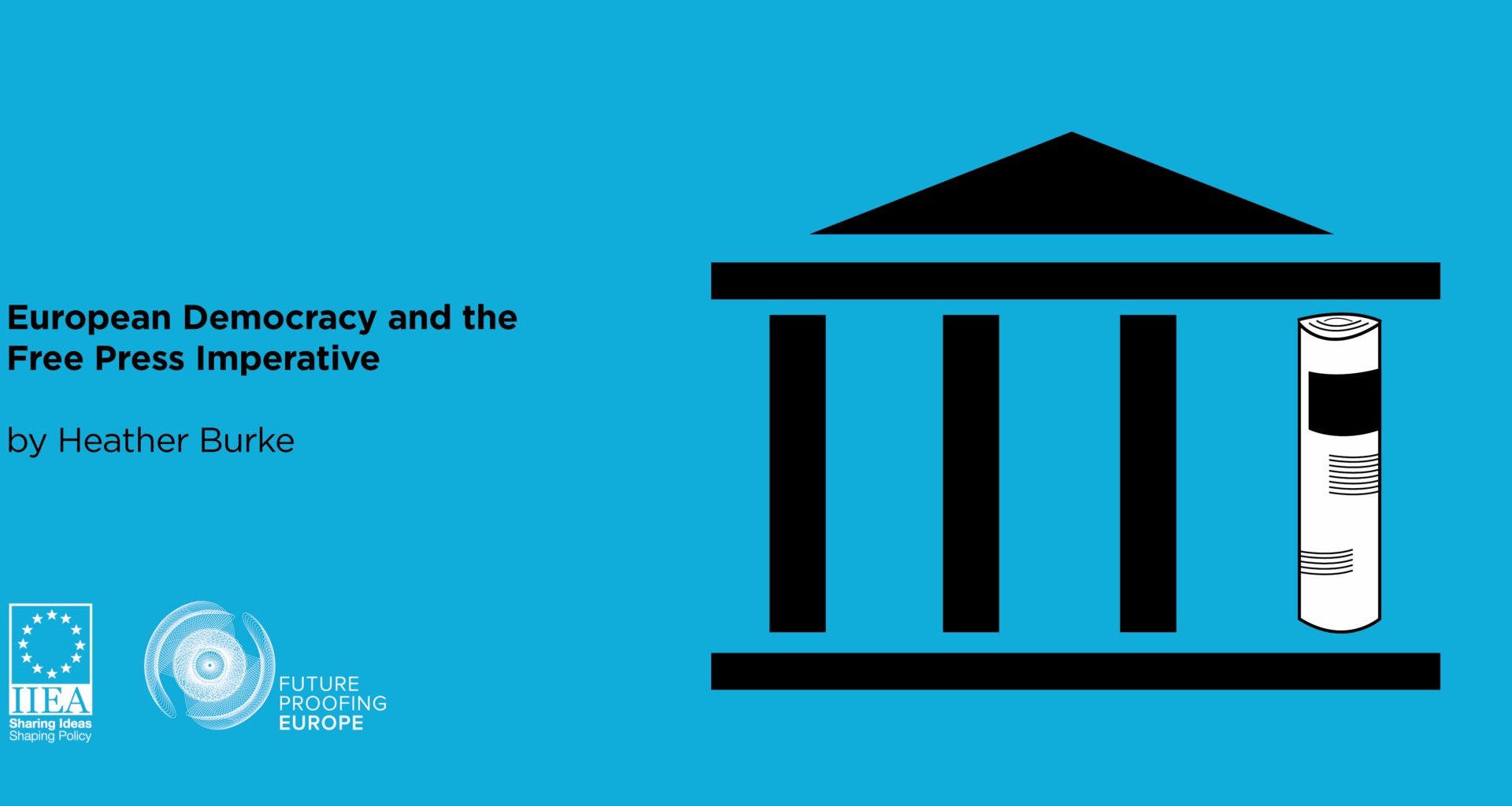
Introduction
SLAPPs (Strategic Lawsuits Against Public Participation) are used to intimidate and silence journalists thus posing a significant threat to freedom of expression and, by extension, to democracy and rule of law in the EU. While healthy democracies depend on informed electorates, who can hold people in power to account, electorates, in turn, rely on access to independent news reporting, investigative journalism, public watchdogs and accountable platforms to be sufficiently and accurately informed. Yet across Europe, the activities of journalists, democracy activists and NGOs in uncovering truth and demanding transparency are increasingly threatened by SLAPPs brought by wealthy and powerful individuals, corporations and illiberal political leaders.
According to the 2025 Rule of Law Report published by Civil Liberties Union for Europe (Liberties), media freedom was the area which experienced the most regression amongst the various dimensions of the rule of law. The EU is alive to the urgency of the issue and in 2024 the European Parliament showed leadership in passing the Anti-SLAPP Directive. Now, Commissioner Michael McGrath’s mandate to protect Democracy, Justice and Rule of Law, and lead the development of the European Democracy Shield also includes supporting an independent, pluralist fourth estate. However, a sustained and informed effort is still required of EU and national lawmakers to foster positive change within EU’s media and civil society landscape.
Assessing the Groundwork
The need for continued political attention to this issue was highlighted at the European Parliament’s Committee on Civil Liberties, Justice and Home Affairs (LIBE) public hearing on strengthening media freedom, freedom of expression and safety of journalists on 12 June 2025. In the hearing, Renate Schroeder, Director of the European Federation of Journalists, argued that implementation of both the European Media Freedom Act and Anti-SLAPP Directive is slow, untransparent and has not evolved in conversation with journalists or civil society platforms.
The EU’s Anti-SLAPP Directive entered law in May 2024. It aims to protect journalists, human rights defenders, and civil society organizations from lawsuits intended to intimidate or silence them for engaging in public participation and from manifestly unfounded claims or abusive court proceedings. Full transposition by Member States is required by 7 May 2026, however only one Member State, Malta, has transposed the provisions of this landmark legislation to date, so its potential role in the protection of EU democracy and media freedom has not yet been realised.
Ireland and SLAPPs
Given the escalation in SLAPPs across the EU, the relationship between media freedom and democracy warrants greater discussion at national level. The Programme for Government 2025 promised that transposition of the Anti-SLAPP Directive would be treated as a priority for this year and chose the Defamation (Amendment) Bill as the legal instrument to implement the Directive, which is currently at Dáil Committee Stage. The remit of the Bill will include not only cross-border but also domestic instances of abusive court proceedings. It introduces a ‘serious harm’ test which a corporate entity must meet to bring defamation proceedings. It also proposes to remove juries from determining defamation proceedings in the High Court. The latter proposal, it is argued, would reduce the time (and cost) of defamation proceedings and mitigate the risks of inconsistently high awards for damages. It has, however, been contested by NGOs, former judges, as well as opposition members within the Dáil Committee, who have voiced opposition to its inclusion on the basis that the public should continue to play a role in the administration of justice.
Next Steps?
Both the Anti-SLAPP Directive and the Defamation (Amendment) Bill 2024 are to be welcomed. They have the potential to curb the impulses of actors such as wealthy corporations or authoritarian politicians to issue legal proceedings against journalists and human rights defenders who criticise their actions.
SLAPPs can undermine and weaken our democracies by attacking journalists and those involved in public participation. However, neither the Anti-SLAPP Directive nor the Defamation (Amendment) Bill 2024 should be treated as panaceas to the many challenges facing human rights defenders, NGOs and journalists across the EU, whose work is so vital to sustaining democratic participation. Often, the threat of legal action alone can act as a sufficient deterrent. The chilling effect of a SLAPP extends across wider civil society such that even the possibility of future legal action could influence a person’s decision not to investigate and publish information on certain actors.
Finally, in the context of EU tools being crafted to protect our democracies, there is a risk that many are defensive rather than pre-emptive in design. Anti-SLAPP measures seek to mitigate or prevent the effects of abusive lawsuits, but they do not in themselves promote vibrant, pluralistic media and civil society frameworks. In that regard, the commitment within the European Democracy Shield to act not only as a shield in countering disinformation and foreign interference, but also as a sword, that acts positively to strengthen civil society and independent media, is reassuring.
The EU and Ireland can contribute to strengthening media pluralism and independence not only through countering attacks, but also by building a strong media ecosystem in which journalists are supported and encouraged to carry out investigations and report on issues of public interest, where watchdogs are valued and where civil society organisations have the space and resources to contribute towards people-centred democratic initiatives, to restore trust in public debate in the EU.
